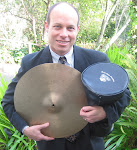Many years ago, as a student teacher in an urban high school, I asked a parent for help in teaching an unengaged and out of control teenager. The parent responded that it was my job and not her's to teach the child. While that unhelpful suggestion may be technically true, parents can do much more to ensure their child's success.
Outlining the major concepts of his book, Our Schools and Our Future, Chester Finn wrote in 1991:
“…we need to integrate parents far more directly and intimately into the work of formal education. This is commonly assumed to be the toughest nut of all to crack, and it may well be. Nor am I referring only to what happens in school. Parents are the single most important influence in the 91 percent of children's lives spent outside school. They aren't the only influence on what happens during that time, of course, but they are much the strongest. Engaging parents in choosing the school is part of the solution. Parent participation in education governance is another. Explicit parent education programs are another….Parent-teacher-student contracts may be yet another. Much more imaginative use can also be made of technology to assist the school to reach the home and vice versa."
So close to twenty years later, have we used the most potent force in education—parents? We have not. Parents do not participate enough in supporting education. I am a father of five as well as a high school teacher. I have seen what parents can do from both sides of the fence. Here are four interventions that are comparably easy to implement.
1. Turn off the television
Television reduces school performance. The tube takes time away from educational activities, and it doesn’t matter what programs are watched. Television also serves as a narcoleptic and makes kids fat. The research linking television watching to increased mortality rates is also quite scary. And this just out on Depression should make you want to throw the television out the window. I do not have a television in my house.
2. Limit cell phone usage.
Turn off your kids’ cell phones at the dinner table and make your home a sanctuary from social media. If you don't think that intervention alone will make a positive difference in your family's life, read Bauerlein’s The Dumbest Generation linked here. See also Daily Media Use Among Children and Teens Up Dramatically from Five Years Ago here.
3. Read.
If parents enjoy books and reading it increases the chances that the kids will too. Kids need background knowledge to succeed in school and reading provides it. I became a good student simply by imitating my father who read his history books on weekends. Active learning, through books, is usually superior to the passive learning of video. We must use our imagination when reading, even somewhat with picture books. A study entitled, Scholarly Culture and Education Success, "based on twenty years' worth of data, found that 'children growing up in homes with many books get 3 years more schooling than children from bookless homes, independent of their parents' education, occupation, and class'" (Friedman and Mandelbaum, That Used to Be Us, Farrar, Straus and Giroux, New York, 2011, P.127)
4. Talk about political issues and school assignments at the dinner table.
My August 16, 2010 post described how dinnertime debates opened up a world of ideas for me. My brother is an award-winning concierge and my sister is a university professor. These dinnertime discussions exposed us to the issues of the day.
Andreas Schleicher, the head of Program for International Student Assessment (PISA), said that his organization interviewed three to five thousand parents of fifteen-year-olds his organization tested in sixteen different countries.
There was a clear connection between parental involvement in their children's education and their PISA scores. Those young people whose parents were involved with their education--doing as little as asking them everyday "How was school?" or "What did you do in school today?"--or read books to them clearly performed better on the PISA test than those whose parents were not involved. (Friedman and Mandelbaum, P.126)Parents can lay the ground work for their children's academic success.





No comments:
Post a Comment